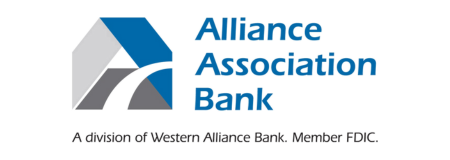TRENTON – Governor Phil Murphy today signed S2760/A4384, which puts in place additional procedures for inspecting, evaluating, and maintaining the structural integrity of certain residential housing structures across the state. Together, these procedures will help ensure the safety, stability, and resilience of New Jersey’s condominiums and coops for generations to come.
“Today we underscore that we will continue to do everything in our power to ensure that no New Jersey community has to endure the tragedy that befell Surfside, Florida just a few years ago,” said Governor Murphy. “Every New Jersey family, regardless of their zip code, deserves to live with the peace of mind that comes with knowing your home will shelter and protect your loved ones against the elements and the test of time.”
“New Jersey has one of the strongest building codes in the nation, as well as a capable team of building codes experts within the Department of Community Affairs (DCA) who work to protect the health and safety of residents and visitors to our state,” said DCA Acting Commissioner Jacquelyn A. Suárez. “The legislation Governor Murphy signed into law today will fortify the State’s longstanding commitment to structurally safe residential housing by ensuring stringent structural inspections and the ongoing maintenance of structural integrity. The new law will help prevent tragedies and protect people’s lives and investments.”
“Over two years ago, 98 lives were tragically lost in Florida due to the collapse of a multifamily housing structure, which resulted from major unresolved structural issues,” said Senator Singleton. “Strengthening construction codes and having structural experts conduct inspections will help to ensure the safety of those living in condominium or cooperative buildings for years to come.”
“The signing of this law will help prevent tragedies – like the one in Florida – from affecting New Jersey’s families,” said Senator Linda Greenstein. “Strengthening our state’s standards for the inspection of housing and ensuring that buildings continue to be maintained for structural integrity will not only help protect our residents, but also allow them to live without worrying about whether their home will protect them during extreme weather or otherwise experience a structural failure.”
“The signing of this bill represents an important step forward in safeguarding against future tragedies at residential housing units like we’ve seen here in New Jersey and elsewhere within our country,” said Assemblywoman Yvonne Lopez. “By requiring condominiums and cooperatives to be inspected and reviewed on a regimented schedule, we are working to protect New Jerseyans going about their daily business within their own residences.”
“People need to feel safe in their homes and this bill, which tightens procedures on condominiums or cooperatives, should provide some piece of mind,” said Assemblyman Benjie Wimberly. “It also assures that real estate developers maintain the financial means to make any structural upgrades needed to fund corrective maintenance to prevent against future structural failures.”
“Today New Jersey has taken a tremendous step towards preventing the human tragedy that occurred in Surfside, Florida when a residential building collapsed killing 98 residents,” said Ed San George, Community Associations Institute – New Jersey Chapter. “We worked closely with New Jersey legislators to address building safety and replacement reserve funding on a statewide basis. As buildings age, inevitable deterioration occurs that must be cured. When proper inspections and maintenance of structural components are delayed, costs can be extensive. We thank Governor Murphy, Senator Singleton, Senator Greenstein, Assemblywoman Lopez, and Assemblyman Wimberly for their efforts to create this protective legislation.”
ABOUT THE AUTHOR
Thank you to the New Jersey Chapter of Community Associations Institute and New Jersey Legislative Action Committee (NJ LAC), who wrote this article.

















